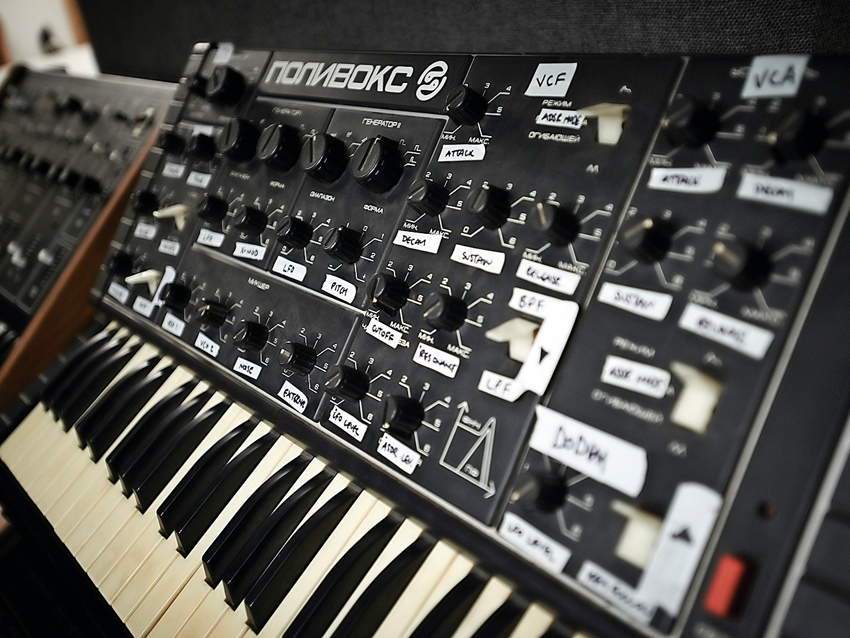In pictures: Erol Alkan's North London studio
The artist, producer, DJ, remixer and label owner shows us his musical home
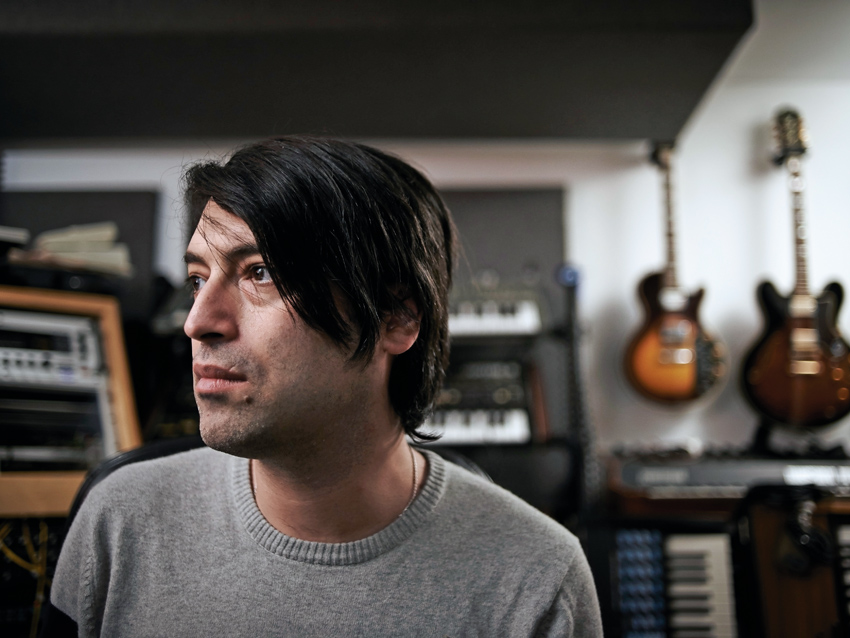
Welcome
While it might sound like something of a cliché, Erol Alkan is an artist for whom ‘the music’ always seems to come first.
Between his seminal mid-noughties clubnights Trash and Durrr, his production credits for the likes of Late Of The Pier, Mystery Jets and Klaxons, his numerous DJ accolades and his countless remixes and collaborations, he has had plenty of opportunities for self-promotion over the years. Yet Alkan’s is a career built not on his own ego, but on using every outlet available to share, nurture and promote new music.
He’s also one of that rare breed of musicians whose talents aren’t confined by genre, with a career touching upon indie, electro, house, techno and beyond, with seemingly little regard for trends or fashions, even when he’s caught up in the middle of them.
2013 saw Alkan setting up his first purpose-built studio space, The Phantasy Sound, a North London hub for himself and the artists on his Phantasy record label. This played a major role in birthing a pair of stunning, yet very different albums: the lo-fi pop of Connan Mockasin’s Caramel and the warped electronic experiments of Daniel Avery’s Drone Logic.
It also resulted in Alkan’s first proper solo release, some 20 years into his career, in the form of the intricately-produced, club-focused Illumination EP.
With yet more new ventures on the horizon, including an excellent entry into the Fabriclive mix series, and a remix album as part of the sun-drenched Psych duo Beyond The Wizards Sleeve, Future Music headed up to North London to meet Alkan and take a nose around the new studio.
For the complete interview and a video studio tour, check out Future Music 284 (Autumn issue) which is on sale now.
NEXT: DAWs
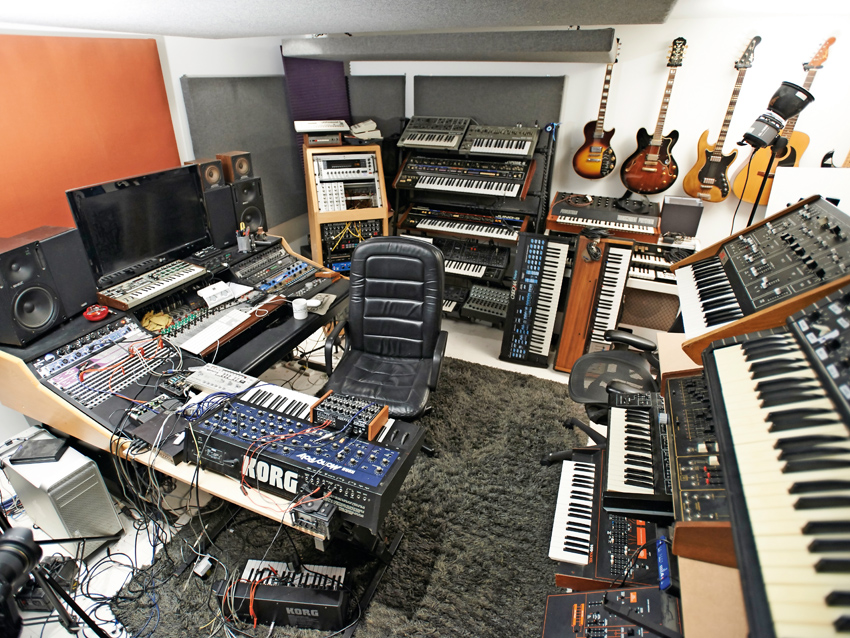
DAWs
“I use Pro Tools when I record bands, especially if I’m tracking drums, but Logic when it comes to using MIDI or anything like that.
“I’ve gotten so used to Logic 9 now. I’ve bought Logic X, which I’ve messed with a bit, but I haven’t really gone in deep with it. I’m a bit scared of Logic X actually.
“I tend to use the native plugins within Logic as I think they’re fine. To be honest with you, I haven’t found a stereo width plugin better than Logic’s one. EQ wise, they’re pretty good transparent EQs which seem to do exactly what you need an EQ to do. I tend to find that, if you’re not getting what you want out of a sound at that stage, maybe the EQ isn’t the main problem - maybe it’s another aspect of it? So I tend to use all of them in a pretty simple way, rather than expecting miracles from plugins.
“I don’t use any particularly esoteric plug-ins. I’ll focus more on what’s going in; that’s about 90% of it for me.”
NEXT: Homemade compressor
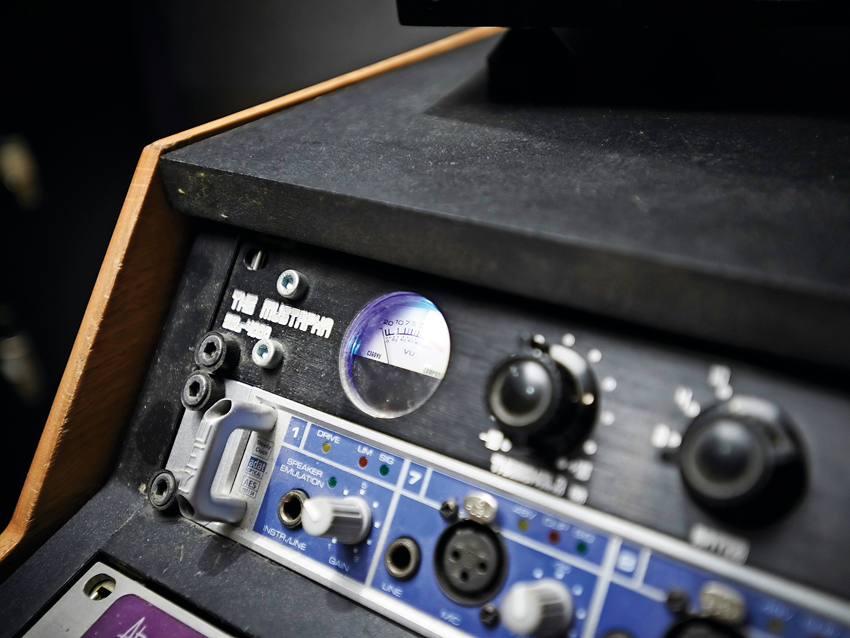
Homemade compressor
“The Mustapha SSL-4000. It’s basically just an SSL clone that I’ve built with a Neve width module. If you whack it all to the far right you lose all the signal and you can check out your clocking as well. If your clocking is a bit dodgy, and it sounds all MP3-ish and digital, then that’ll tell you.”
NEXT: Pioneer rekordbox
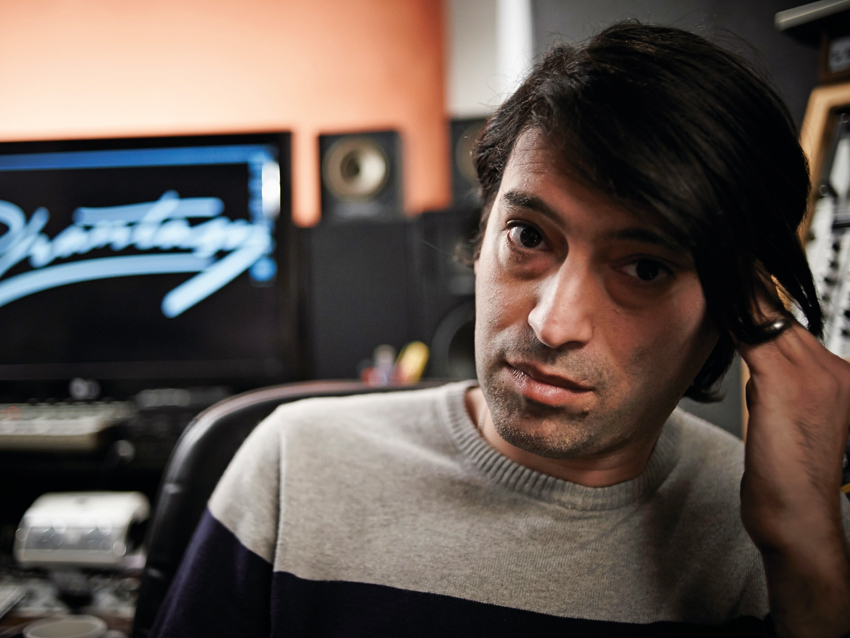
Pioneer rekordbox
“Ever since rekordbox came along, it’s meant that I can pool all my music together and organise it in a way I understand.
“The great thing is that you can come up with your own system of working. I do feel a bit guilty about being able to turn up somewhere with a pair of headphones and a USB key, when you see bands with trucks full of gear and a crew of 30 people to play the same stage, but that’s the way DJing has gone. I still believe that DJing in its greatest form is just as creative and exciting as what bands can do. It’s just a great system, though.
“I’m curious as to what the next thing is going to be. I know that you can do a lot of things with mobile phones now, but I don’t trust them!”
NEXT: Yamaha NS10s
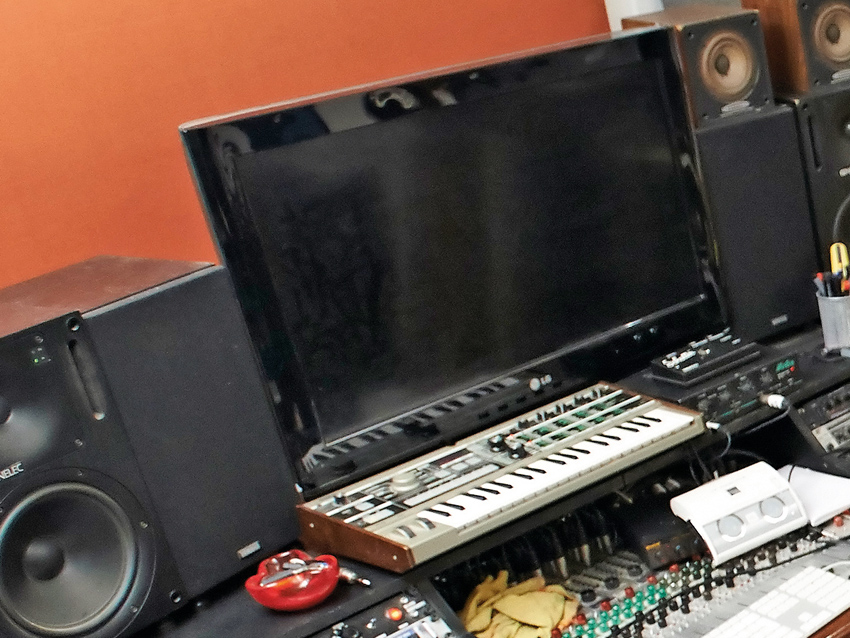
Yamaha NS10s
“I just have them because they sound so bad. As they say with NS10s - if it sounds good on them, then it’ll sound good anywhere.”
NEXT: Effectron delays
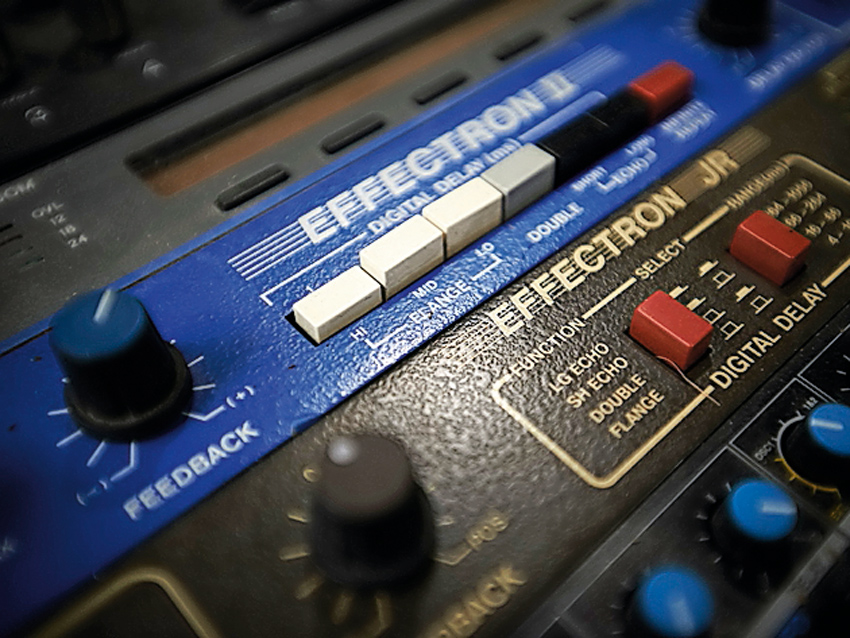
Effectron delays
“I’m a big fan of the Effectron delays from the ’80s. They’re great, unpredictable delays. I like to send stuff to them and have it very, very low in the mix.”
NEXT: Roland TB-303
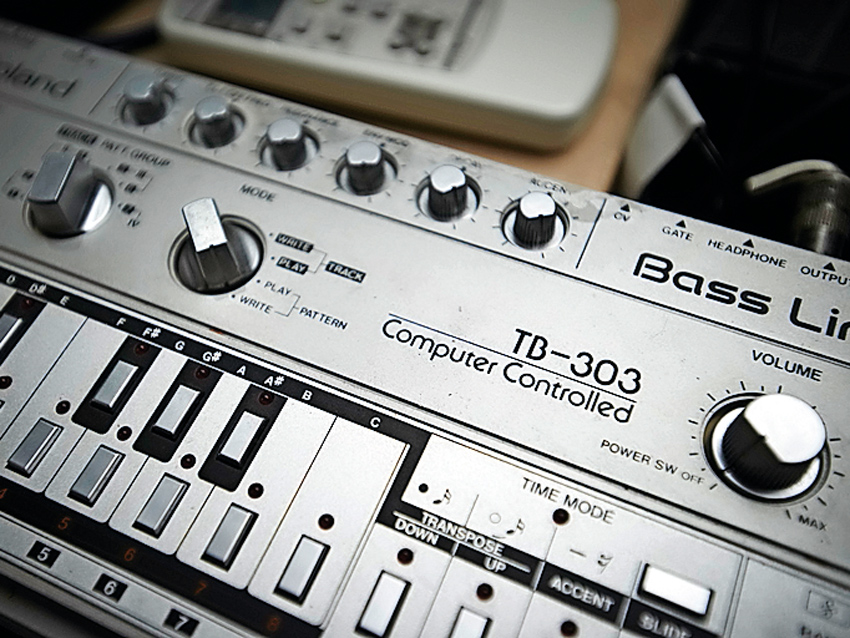
Roland TB-303
“This is a recent purchase and something I’ve been wanting for a while. I’m in love with it - not just for the fact that it’s a 303, but also because it’s got cool things like CV out, so you can actually write a pattern inside of it and send that to other synths.”
NEXT: Korg Mono/Poly
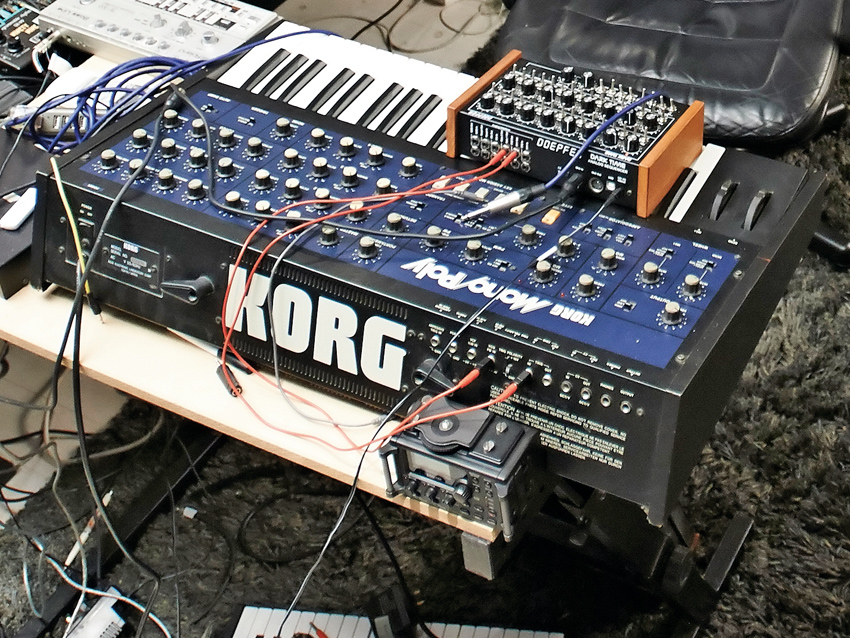
Korg Mono/Poly
“This is a brand-new acquisition, so I’ve just been messing around with it.”
NEXT: Roland SH-1
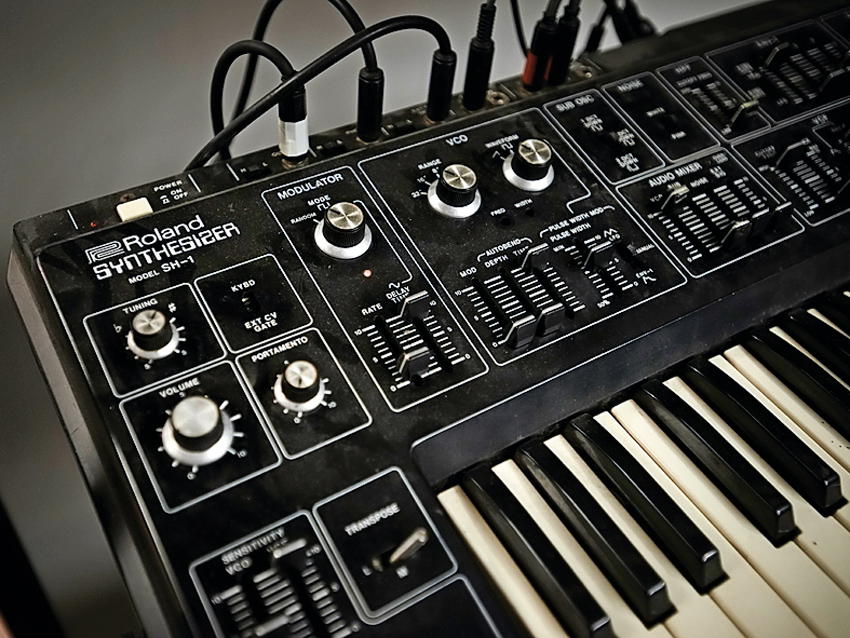
Roland SH-1
“It tends to do bass like no other synth I have. I’ve a trick that I do with it, that I don’t want to reveal, but there’s a workaround if you experiment with the patching capabilities. You can get some pretty amazing, deep, cranium-quaking bass from it!”
NEXT: Formanta Polivoks
Future Music is the number one magazine for today's producers. Packed with technique and technology we'll help you make great new music. All-access artist interviews, in-depth gear reviews, essential production tutorials and much more. Every marvellous monthly edition features reliable reviews of the latest and greatest hardware and software technology and techniques, unparalleled advice, in-depth interviews, sensational free samples and so much more to improve the experience and outcome of your music-making.


